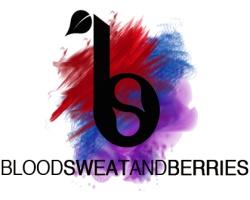Helping Youth Spread Social Justice Through Art
Blood, Sweat and Berries is a non-profit organization formed by three college students for the purpose of voicing social justice through art. It is a voice for farm working immigrants and helps youth with scholarships through fundraising. Headquartered in the Pacific North West, it currently is advertising a dinner where a documentary about the lives of farm immigrant workers in the United States will be featured.
Students Jacob Suazo, Rex Yabut, Scott Hines and Teresa Javillonar, who later became directors for Blood Sweat and Berries, made a documentary about the migrant camp experience and traveled to California’s Central Valley, Oregon’s Tualatin Valley and Washington’s Skagit Valley to conduct interviews regarding their project.
The four frequently participated in the Youth Migrant Project in the Skagit Valley. Their constant mission trips inspired them to aid migrant workers more. This socially just idea resulted in a documentary focused on their experiences with migrant farmers.
What originated as a single project transformed into BSB. The directors developed the title during dinner one summer evening, and they began filming the summer of 2009, releasing their first preview that winter. They displayed the unfinished film to focus groups during the following months in three showings. By the summer of 2010, they began the full edit and gathered critiques for the finished version; one focus group session took place at the University of Portland with more than 100 students. The documentary recently underwent final changes.
The filming process was long; the directors filmed during a two-year span. Hines and Suazo edited the film, overcoming academic obligations as pre-med students. They worked on weekends and school holidays, often long hours.
The group faced several challenges before and after initiating the project, but its passion for the mission and perseverance to succeed were not obstacles. The team earned money by fundraisers and donations. It held a garage sale, sent letters to friends and families asking for donations and sold T-shirts. It had to raise about $10,000 for materials, equipment and other necessities for the trip–and succeeded.
Accessing farm workers and farmers took about a year of preparation before filming could begin. The directors networked in various places, made various phone calls and took a preliminary trip to California. They interviewed anyone with an opinion: consumers, farmers, migrants, law officials, community leaders, priests, business owners, and others.
Suazo spent most of his freshman year at Saint Martin’s University preparing for the film.
“The most challenging part about filming this documentary was the work that had to be put into it among school obligations, work and sports. It was definitely a 40-hour a week job, and still is. What also made it hard was the fact that I attend Saint Martin’s, Scott attends University of Portland, Rex lives in Tacoma, and Teresa attends the University of Washington. The distance made it difficult as well,” he said.
Before they began filming, they set out to learn the causes of the injustice they witnessed. They initially thought farmers used selfish and unfair tactics with migrant workers; the directors later learned they, as does most of the rest of the country, know very little about our agricultural industry.
Suazo’s vision is for viewers to be aware and learn more about the agriculture industry and what it has become today, to learn the choices people make as consumers that impact the quality of life for others.
One of the main memories BSB has taken to heart was the experience of living as migrants by working in the fields.
Suazo said this documentary is not the end. BSB also offers a $500 scholarship for high school seniors and college students. Students are asked to submit a piece of art and write a one- to two-page paper about what his their art means. For more information please visit the BSB website.
BSB will host its annual fundraising dinner at St. Martin’s Worthington Center on June 3 from 5:30 to 9:00 p.m., where its complete documentary will be available to purchase.




